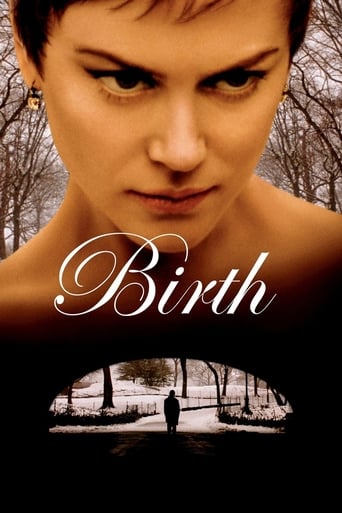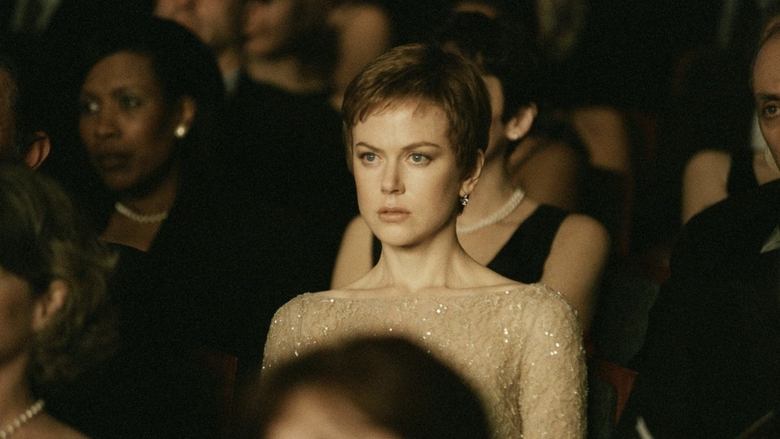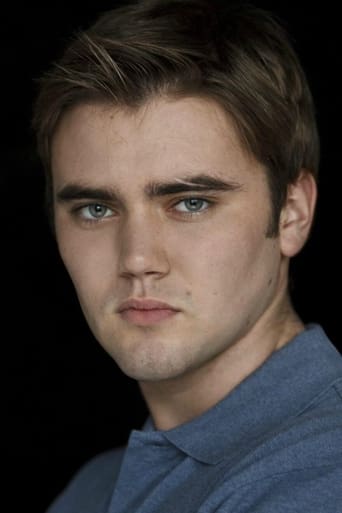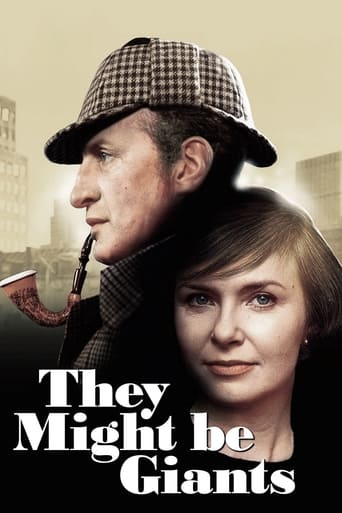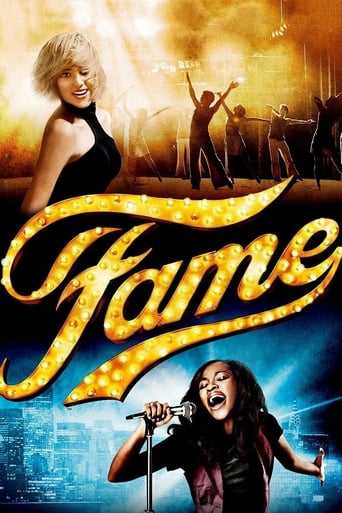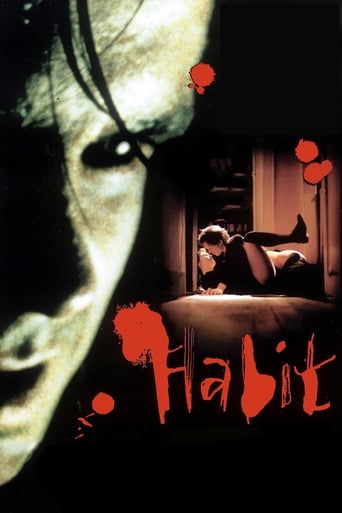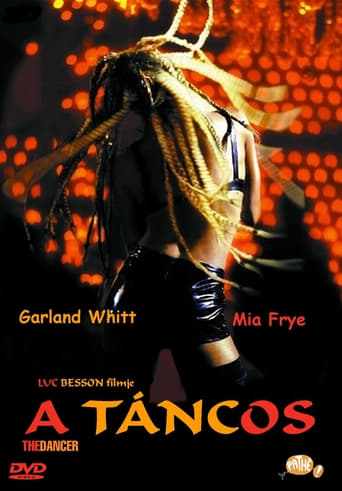Birth (2004)
It took Anna 10 years to recover from the death of her husband, Sean, but now she's on the verge of marrying her boyfriend, Joseph, and finally moving on. However, on the night of her engagement party, a young boy named Sean turns up, saying he is her dead husband reincarnated. At first she ignores the child, but his knowledge of her former husband's life is uncanny, leading her to believe that he might be telling the truth.
Watch Trailer
Cast


Similar titles
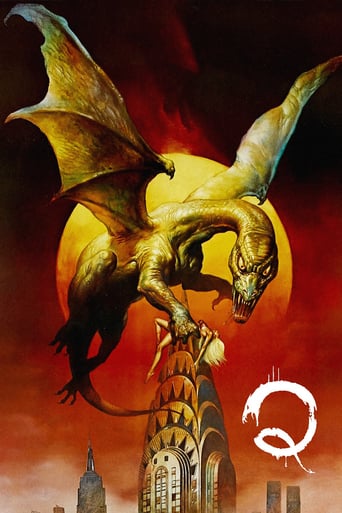
Reviews
another heart stopping drama.the movie picked great pace suddenly lost control and fell down.the end result is entire effect is lost.a 10 year old boy re-incarnation is certainly a very different theme. wife also strongly believed that the kid is her husband's re-birth. what followed is an intriguing drama and very difficult to guess what is going to happen next.so far great.wife decided to elope with the kid.heart racing.but alas!thud!the kid admitted that he is cheating.how? director only knows.I am so disappointed at this point and felt that the director got cold feet belatedly and the entire theme spoiled . even though Nicole Kidman's performance is brilliant the film fell flat on its face.the proper ending should have been the death of both Kidman and the kid .
I've been hearing for a while now about the praise Nicole Kidman receives in Birth, and so I definitely saw it for her. She was magnificent, one of her very best performances and perhaps her best performance of the 2000s. However, I also found the film to be quiet effective. It has an ominous, wonderfully atmospheric tone and sensitive direction that sort of manages to cast a spell on you (the way Kidman's character perhaps is in the film). I do wish it was left more ambiguous, and there's still quite a few things that don't entirely make sense when you think about the "ending resolution". Still, surprised it got such a cold response from critics.
Having only recently watched this, I am slightly torn as to what to make of it. On one hand, the cinematography - all eerie, snowy landscapes in palate tones and classic houses, is stunning, and the acting from all of the performers is incredibly executed and "real". Another thing that stood out for me from the start of the movie was the score, which is incredibly raw, organic and haunting but manages to stay somewhat uplifting. As a film in general, however, I felt that too many things were left unanswered or unclear. The inclusion of Sean's secret lover was a brilliant touch, and as pointed out by another review, was pivotal to the end of the film as one could argue that Sean was tricking Anna into thinking he was lying throughout the film about being her husband, because he was ashamed of the way that he lived in his previous life with her. Although this seems incredibly likely, it is left very much to the viewer to make this decision themselves, as the only hint is a one liner from Sean -"Don't tell Anna" when his lover comes to see him, implying that he knows who she is. This suggests that he really is a reincarnated Sean, which on a first view you would not see, as this hidden message is simply, too hidden. Another thing that struck me was that because the acting was so real, it seemed unlikely that Anna would of fallen for the boy, simply because he shows no character traits of Sean, except for memories such as knowing where and when they slept together, etc. In fact, other than that, the only "proof" Anna would have that the boy is Sean, is the fact that he tells her "I am Sean". The film seems more a character portrait of Anna, as you watch her slowly deteriorate from a level headed, relaxed and balanced woman from a privileged background (which makes the whole situation worse, as her prim family watch in disapproval as she falls for the boy claiming to be her husband), into a slightly unstable and confused character, who seems to simply want to believe that the boy really is Sean. All in all, a good film with a decent plot, excellent cinematography and a breathtaking score, but the anti-climax style ending could be a let down to viewers if they do not take in the fact that Sean may have been so embarrassed about cheating on Anna in his past life that he convinces her he was lying throughout the film.
"Sorrow makes us all children again." - Ralph Emerson Jonathan Glazer's "Birth" stars Nicole Kidman as Anna, a woman whose husband died ten years earlier. Though still mourning her husband's passing, Anna begins a relationship with Joseph, whom she somewhat reluctantly plans to marry. Things get complicated, however, when a ten year old boy enters Anna's life. She doesn't know him, but the boy claims to be her long dead husband. Much creepiness, confusion and mystery then ensues."Birth" was written by Jean-Claude Carriere, who worked on a number of Luis Bunuel's scripts ("Belle de Jour", "The Milky Way", "The Discreet Charm of the Bourgeoisie", "The Phantom of Liberty", "That Obscure Object of Desire"). Like most of those films, "Birth" eventually becomes a meditative inquiry, the ten year old boy becoming a manifestation of Anna's grief and pre-marital anxieties. He is a weight tying her to the past, an anchor preventing her from moving on. In a very real sense, his birth prevents her rebirth.It's important to remember that Carriere often writes about issues of theology and has even interviewed the Dalai Lama several times. So look closer, and "Birth" is very much about faith, belief and even fundamentalism. In this regard, the film revolves around twin beliefs; Anna's absurd belief that the boy is her husband reborn, and the boy's belief that he can be her husband if only he ritualistically love her like a husband should. For obvious reasons, both beliefs are presented as being, not only irrational, but highly transgressive, veering into paedophilia in Anna's case and peripubescent teleiophilia in the boy's case. But both transgressions are also shown to be surmountable, the film echoing Blaise Pascal's famous advice to those who struggle with faith: when in doubt, ritualistically kneel down and pray until faith comes to you. This, of course, echoes numerous self-help mantras: "Believe until you believe", "Fake it until you make it", "Practise makes perfect" etc. What the film says, though, is that, not only is belief less dependent on the subject's critical judgement than on habit, but that belief always serves to delay the inevitable. Belief always delays realisation and defers (unattainable) satisfactions and expectations. Belief, then, is the postponement of the trauma of belief. In this regard, Anna not only feigns love in order to postpone the realisation that the boy is not her husband, but feigns love in order to delay having to feign love for a new man, the Biblically named Joseph. The film then ends with Anna on a beach, tearfully embracing her new husband. She will fake it with him until she believes it. The difference is, now she's learnt she never will. This is Antonioni/Kubrick territory ("Beyond The Clouds", "Identification of a Woman", "Eyes Wide Shut" etc): our only means of being guilty is by giving way to desire, and the only way that one can truly love another is by absolving them of the burden of believing in that love.For three quarters of its running time, "Birth" is a masterful picture. This is a type of high-brow "European psychodrama" which all but died in the 1960s. Elsewhere it resembles the moody horrors of early Polanski ("Repulsion", "The Tenant" and "Rosemary's Baby", Kidman even sporting a Mia Farrow haircut) and late Kubrick (The Shining", "Eyes Wide Shut"), with a little Hitchcock thrown in. Shot by cinematographer Harry Savides (the sublime "Elephant"), it's a gorgeous film, filled with elegant passages, enchanting moments, and spooky, stealthy camera movements.Unfortunately the film's final act is a mess, "Birth" degenerating into merely a classier version of "The Sixth Sense", topped off by a generic "beach ending" reminiscent of Truffaut's "400 Blows" and Fellini's "La Dolce Vtia". And so by the film's climax, the audience is offered one of two readings. Either there genuinely was a reincarnation, the boy halting his romantic pursuits simply because he realised that he was unfaithful to his wife in his prior life, or there was no reincarnation, the boy concocting an elaborate plot because of his infatuation with Anna. The latter reading is the more interesting, as it suggests that the boy's fantasies stem from his poverty. This again is a common Jean-Claude Carriere theme; the pauper child wants to live in Anna's world of wealth and elegance, but cannot have it because he refuses to be the bastard her husband was.Watch the film a second time, though, and neither reading enhances the film or adds nuance to what we see unfold. Instead, our newfound knowledge seems to push "Birth" toward the phony and the unsatisfying. In a way, this is thematically fitting. The con job the kid plays on Anna is akin to the con job this film plays on its audience. It's all outer appearances and outer beauty, all of which masks the fact that there's nothing present except for the longing of presence.8/10 – See Agnieszka Holland's similarly themed "Olivier, Olivier". Worth two viewing.

